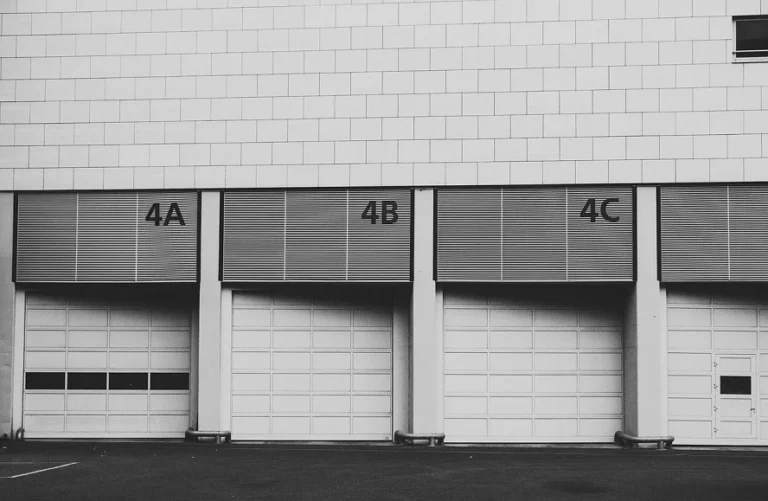Running a small business often means juggling multiple priorities, and one common challenge is managing limited space. Businesses frequently need additional room for excess inventory and important documents and equipment.
In Trafford Park, office spaces tend to be compact, which can make managing items on-site a struggle. Many businesses in the area rely on external storage facilities to address these challenges. With so many options available, choosing the right one is essential to ensure your items are accessible, safe, and well-maintained. Businesses can find the perfect solution to meet their unique needs by carefully evaluating options.
This article will help you choose the right storage facility for your needs.
Understand Your Business Needs
Before selecting a facility, it’s important to assess your specific requirements. Identify what you plan to keep off-site, whether it’s equipment, files, or inventory. Consider the volume of items and whether they’ll require special conditions, such as temperature control. It’s also wise to think about future needs. If your business is growing, look for a facility that offers flexible space or scalable options. Planning ahead can save you the hassle of switching to a new provider later.
Consider the Location
Convenience is a key factor when choosing a facility. A location that is easy to reach can save time and effort, especially if you need to access your items frequently. Consider facilities close to your business or major transport links for added ease. Having a nearby facility can streamline day-to-day operations and reduce transportation costs. Accessibility is particularly important if you’re retrieving or storing items regularly. If you’re looking for reliable facilities that provide units for self-storage Trafford Park has many reliable options like Pink Storage that promise convenience and accessibility, ensuring a stress-free experience for businesses struggling to manage excessive belongings.
Evaluate Security Features
Security should be a top priority when selecting an external facility. Look for essential features such as CCTV, gated access, and secure locks. Some providers also have on-site staff to ensure added protection. If you’re keeping valuable items off-site, strong security measures can give you peace of mind and reduce the risk of theft or damage.
Check Accessibility
Accessibility is crucial for businesses that need frequent access to their items. Look for extended or 24/7 access facilities and convenient loading areas. Drive-up units or loading docks can make moving items in and out easier. The easier it is to access your items, the smoother your business operations.
Analyse Costs and Pricing
Understanding the costs involved is vital to making the right decision. Compare pricing structures and look for any additional fees, such as insurance or access charges. Transparent pricing ensures there are no surprises later. Flexible rental terms are also worth considering, especially if your needs might change. This allows you to adjust your arrangement without unnecessary financial strain.
Assess Unit Sizes and Configurations
Finding a unit that fits your needs is important when choosing a facility. Units come in various sizes, and selecting the right one ensures you’re not paying for unused space or cramming items into an area that’s too small. Take inventory of what you plan to store and choose a unit size accordingly. Many facilities offer flexibility, allowing you to switch to a larger or smaller unit if your needs change. It’s also helpful to inquire about configurations, such as shelving options, to optimise the use of available space.
Inspect Cleanliness and Maintenance
Cleanliness is critical in choosing a facility, as poor maintenance can damage your items. Inspect the premises to ensure it’s free from pests, leaks, or other hazards that could harm your belongings. A clean and well-maintained facility shows that the provider prioritises the care of their property and the items stored there.
Consider Climate-Controlled Options
Some items, such as electronics, documents, or delicate materials, require specific conditions to stay in good shape. Climate-controlled units maintain stable temperature and humidity levels, making them ideal for sensitive items. While climate-controlled options may cost more, they can prevent costly damage to your belongings. Investing in a climate-controlled unit can save you time and money in the long run if your business deals with temperature-sensitive inventory.
Review the Facility’s Reputation
A facility’s reputation can give you a good idea of what to expect. Look for reviews or testimonials from other businesses to learn about their experiences. Reliable facilities will have positive feedback regarding security, customer service, and overall satisfaction. If possible, visit the facility in person and speak with staff to get a sense of their professionalism and willingness to address your concerns. A trusted provider will prioritise your needs and offer support when needed.
Understand the Terms of the Rental Agreement
Before committing to a facility, carefully review the rental agreement. Key details to check include the length of the contract, cancellation policies, and any additional fees. Ensure the terms are clear and aligned with your business needs. If flexibility is important, look for month-to-month agreements or shorter-term options. This can help you avoid being locked into a contract that doesn’t suit your changing requirements.
Choosing the right storage facility is a crucial step for small businesses aiming to optimise operations and safeguard their assets. A thoughtful choice today can lead to long-term benefits and smoother business processes. For more expert tips and insights, visit NextMagazine today!

